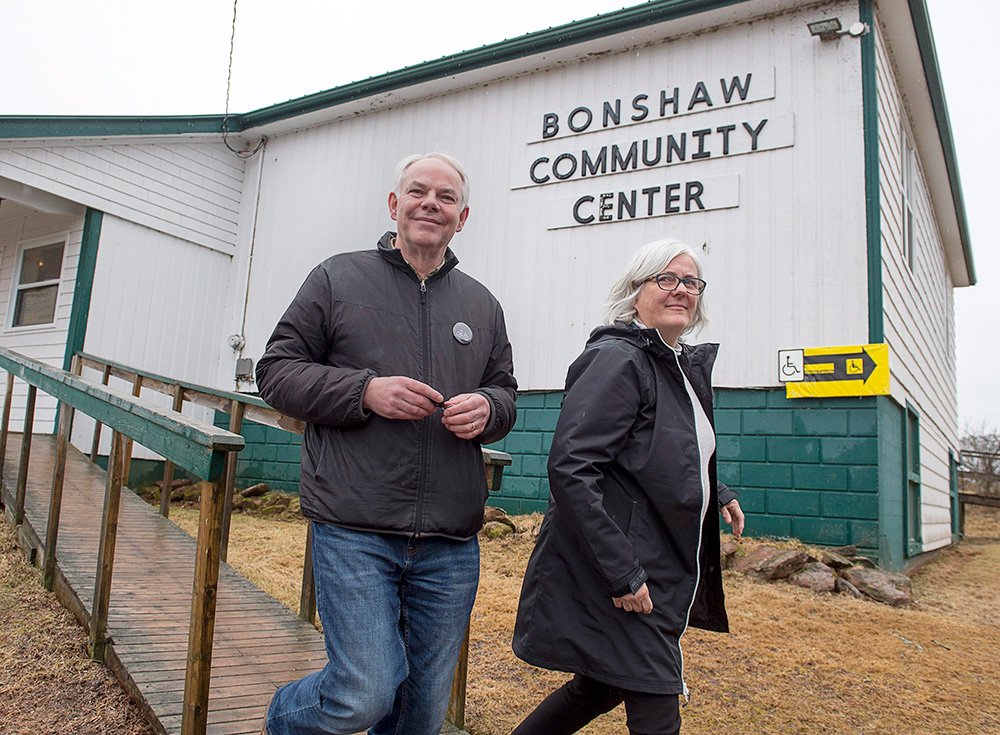Yes, Prince Edward Island politics are quirky.
But the Green party’s strong performance in Tuesday’s provincial election offers lessons for their counterparts in B.C. and across Canada.
Polls had suggested the Greens were on track to form a minority government — if the Conservatives or Liberals would support them — with about 36 per cent of the popular vote.
Instead, the Greens captured 31 per cent of the popular vote, and eight seats. The Conservatives won 12 seats, enough to give them a chance to form a minority government in the 27-seat legislature. The governing Liberals were reduced to six seats.
Still, the Green breakthrough was remarkable. They jumped from two seats to eight, almost tripled their share of the popular vote and are the official Opposition.
Prince Edward Island is an outlier. It’s tiny — one-sixth the size of Vancouver Island. Its population, about 153,000, is the same as Kelowna. The province is blindingly white with less than 10 per cent of people identifying as Indigenous or a visible minority. (Compared with 34 per cent in B.C.)
There are no regional divides — the island is only 225 kilometres long. There are few urban issues, as Charlottetown, the capital and big city, has the same population as Penticton. And an average riding has 5,700 people, compared with 55,000 in B.C. Voters often know the candidates personally.
In short, it’s nothing like B.C.
But there are still lessons in the Greens’ success in the home of Anne of Green Gables.
The Greens’ main accomplishment was upending the province’s entrenched two-party system, which has seen the Liberals and Conservatives alternate in government. Every three elections or so, voters would grow tired of the party in power and give the other team a go for a while, then repeat.
With almost a third of the popular vote, the Greens moved beyond being an alternative or protest vote, and established themselves as credible candidates to govern.
That’s critical. In B.C., many potential Green supporters fear their votes will be wasted. Strategic voting is a significant barrier to Green success.
The P.E.I. result ends that dilemma for Green voters in the potato province, as their party now has demonstrated it has a credible chance in most ridings.
And that in turn has given the Greens the freedom to make a real impact as official Opposition, and a chance to audition for a turn in government.
BC Greens tried to make the most of their three seats after the 2016 election, negotiating an agreement to support the NDP minority government based on action on some of their key issues.
But in reaching the deal the BC Greens face the reality that if the government falls, the next election will once again be about whether the Liberals or the NDP should govern.
And in that situation, the Greens would be hard-pressed to hold onto their existing seats, let alone gain ground. The Nanaimo byelection offers a good preview of the challenge the party faces. In the 2017 election, the Greens received almost 20 per cent of the vote in the riding. In January, with the fate of the government on the line, that fell to seven per cent.
That reality has also affected their role in the legislature, and made it harder to establish a presence. The Greens have been effective in raising issues in question period — more effective than the Liberals most of the time — and in debates. (Especially considering the challenges of keeping track of government with a three-person caucus.)
And they have staked a clear position with their opposition to LNG development, and the government subsidies that enable it.
But when push comes to shove, the Greens have to back the government on confidence votes, because they face the risk of being crushed in an election.
How did the P.E.I. Greens do it?
First, they managed to move beyond the perception that they were content to be the voice of environmental advocacy, and leave the economy, social policy and tax policy to others. Their platform talked about the impossibility of having “a thriving economy on a dying planet” and the threat of pollution.
But, it added, “we cannot provide a bright future for our children or grandchildren if we continue to accumulate more government debt with irresponsible spending.”
The Greens’ platform, fully costed, was socially and environmentally progressive and fiscally conservative. And it resonated with voters.
And perhaps more critically, Green Leader Peter Bevan-Baker, a dentist elected in 2015, pitched the party as an alternative to traditional partisan politics. He talked about co-operation instead of conflict, collaboration instead of catcalls and insults. It worked.
It’s hardly a Green tidal wave, but the party now has seats in four provincial legislatures. With the P.E.I. results, the party has taken a big step toward a more central role. ![]()
Read more: Politics

















Tyee Commenting Guidelines
Comments that violate guidelines risk being deleted, and violations may result in a temporary or permanent user ban. Maintain the spirit of good conversation to stay in the discussion.
*Please note The Tyee is not a forum for spreading misinformation about COVID-19, denying its existence or minimizing its risk to public health.
Do:
Do not: